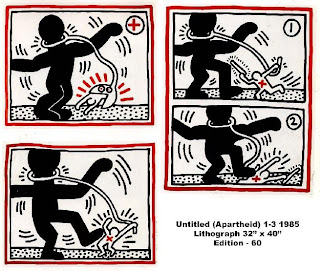Friday, July 5, 2013
Nelson Mandela
I developed an avid interest in Africa and in South Africa and apartheid, specifically, during high school in the 80s. My high school hosted the International Baccalaureate Program, and one of the perks for those of us who pursued the IB Diploma was an exchange trip to the Armand Hammer World College in New Mexico, where we had the opportunity to meet students from across the globe and then host international peers in our own homes. It was through this opportunity that I befriended two South African young men whose stories fascinated and horrified me--one of them had witnessed his activist father's shooting death at a checkpoint near Durban. I wrote one of my college essays on the inspiration provided by my relationship with these fellow students, and my plans to continue learning about Africa. I devoured such books as Cry, the Beloved Country and The Power of One.
The summer between my junior and senior years of high school, I attended a pre-college program at Barnard in New York City. There I discovered gay artist Keith Haring, whose simple graphics depicted powerful political images. I frequented his Pop Shop and came home with a nearly wall-sized anti-apartheid poster.
As I applied to college and planned to enroll at Yale, I knew there had been a student movement to demand Yale's divestment from South Africa. Apartheid, to us in America, was at once unthinkable and arcane, and yet South Africa continued its tradition of oppression and Mandela remained imprisoned. I look back now and recognize that my college years marked the fall of the Berlin Wall, the end of apartheid, and the rise of awareness of AIDS. Mandela distinguishes himself as a hero of my generation.
Today Nelson Mandela is in hospital in critical condition. Last week the United States Supreme Court declared the Defense of Marriage Act unconstitutional, paving the way for gay marriage across our country. It seems possible that the arcane and unthinkable, as represented in law, grows increasingly rare.
There's hope. The kind of hope embodied in a man who spent 27 years of his life in prison for the cause of his people, and people everywhere.
Thank you, Mr. Mandela.
Subscribe to:
Post Comments (Atom)

2 comments:
You were admirably more aware of the world around you in high school. What a lovely remembrance of a time that was not as long ago as it seems and a tribute to how far we've come (with so much farther to go).
Love love thank you
Post a Comment